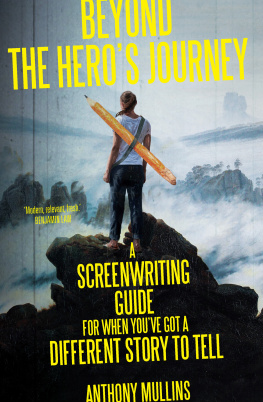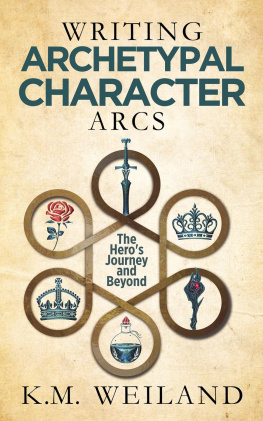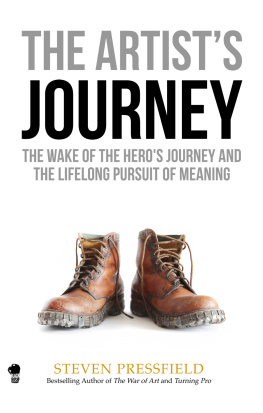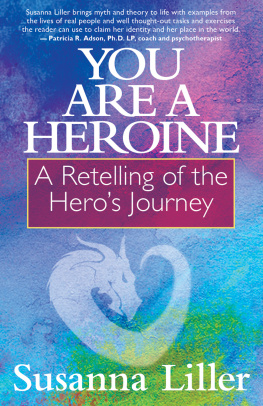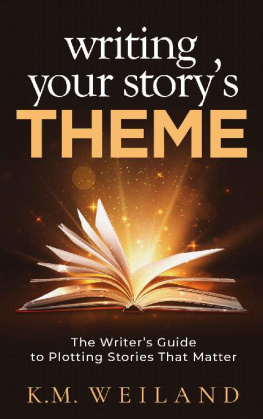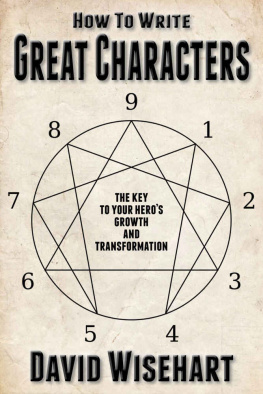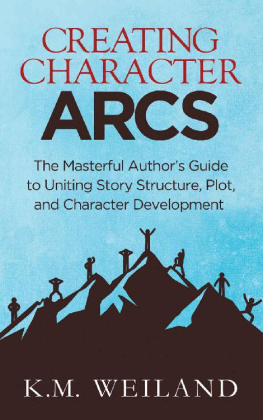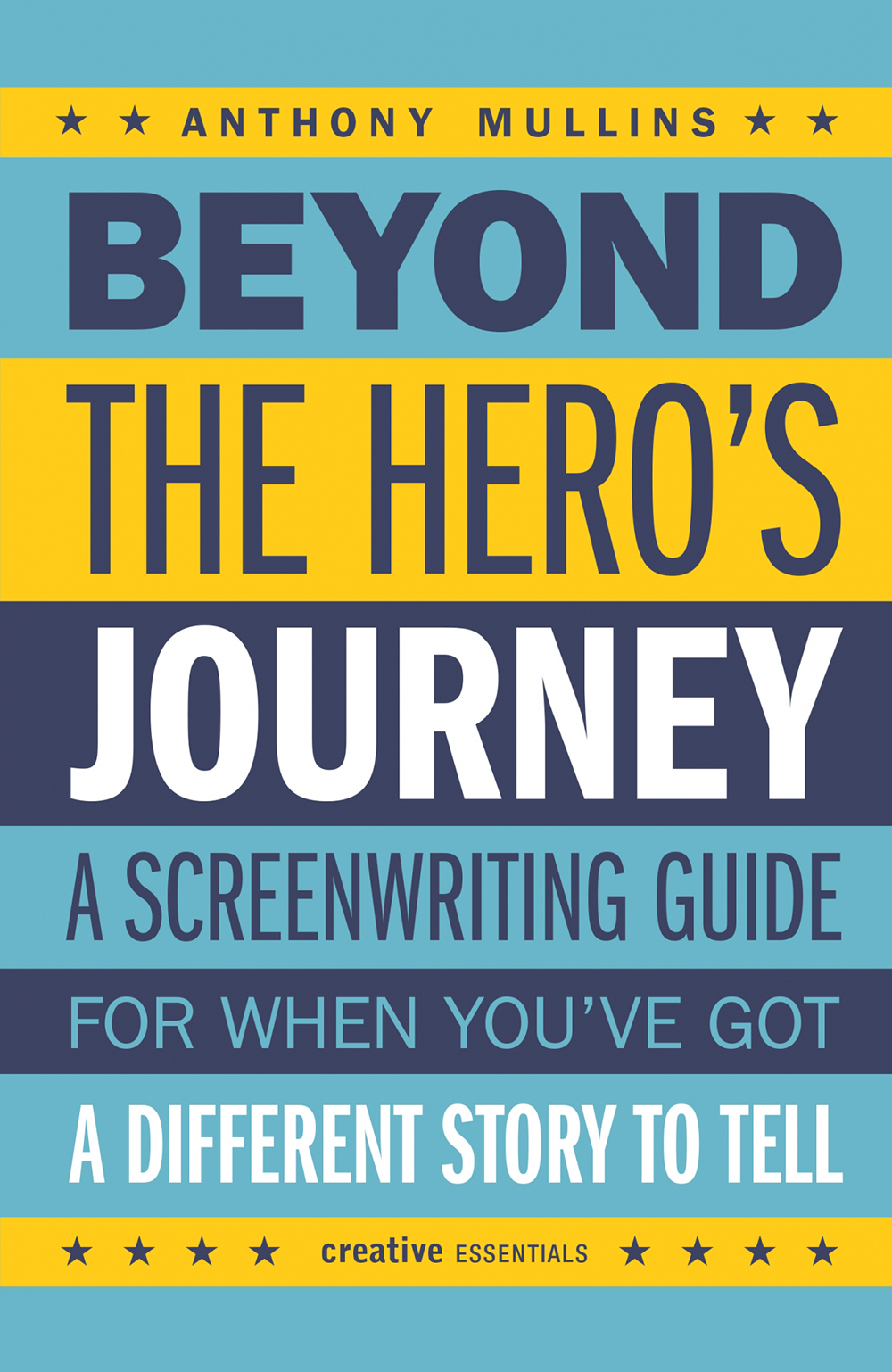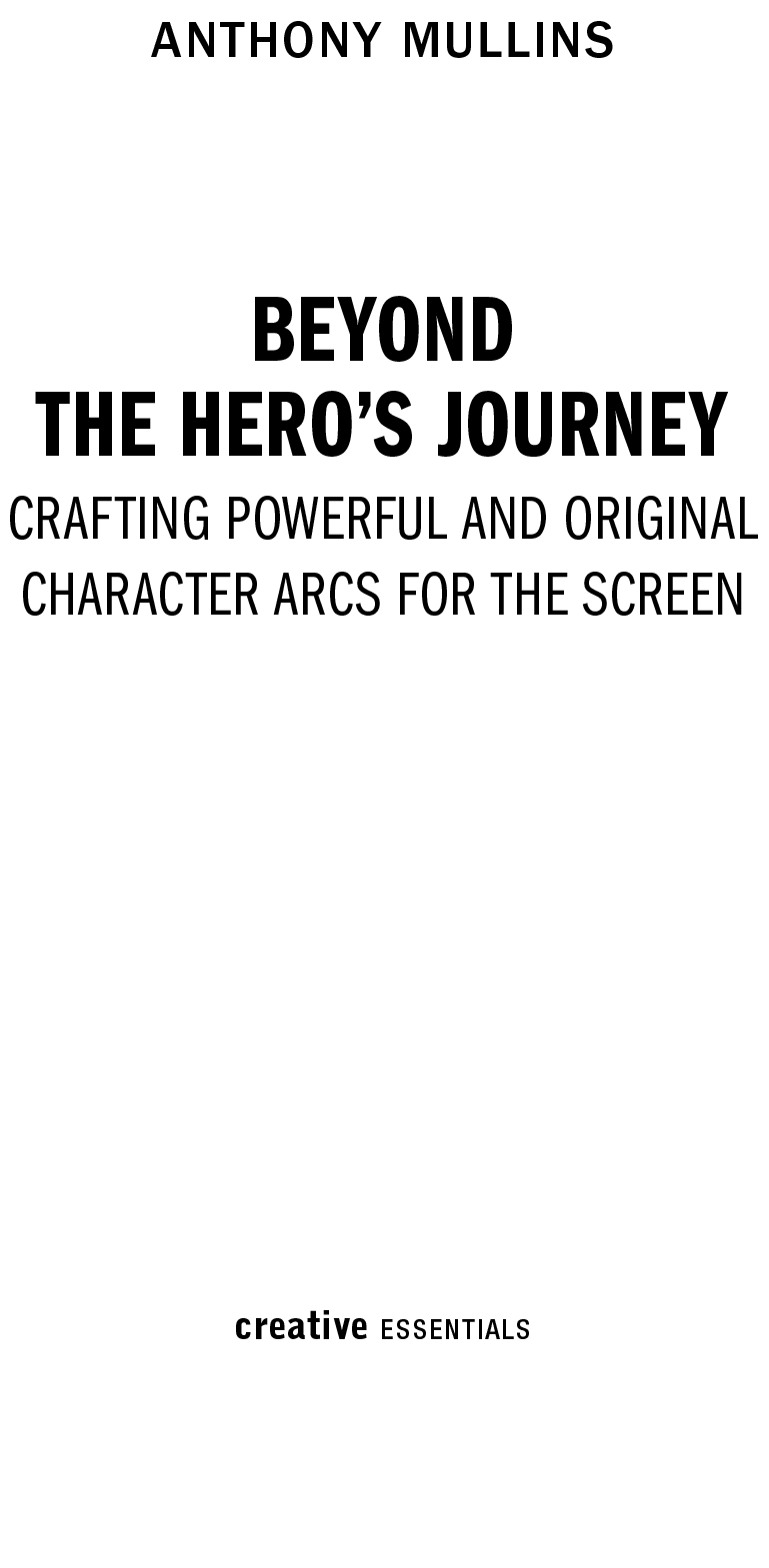Praise for Beyond The Heros Journey
Essential. Dont start writing scripts without it. And if youre writing scripts already, read it to explode every existing assumption. Modern, relevant, fresh, this book unpacks the shows and movies were watching now. Anthony Mullins isnt just someone who inhales stories, but gets what theyre doing and nails what we can learn from them. Theres so much here I wish I knew when I started screenwriting. Hell, theres so much thats helped me refine the TV show Im writing right now Benjamin Law, creator/writer of The Family Law
Beyond The Heros Journey will inspire you to rethink screenwriting. Written in a readable, conversational voice and drawing on Hollywood, independent and international scripting examples, it challenges us to focus on character arcs as the screenplays central organising principle. It finds in arcs not only external action, but the deepest levels of internal characterisation. I cannot recommend Anthony Mullins approach enough; he has found a powerful path to the heart of story Jeff Rush, co-author of Alternative Scriptwriting: Beyond the Hollywood Formula
For decades now, screenwriting manuals have almost religiously followed the principles of the heros journey and the three-act structure. Both great frameworks but only for a certain type of storytelling. In this peak TV era of long-form, ensemble storytelling, with its non-linear structures and anti-heroes, writers are crying out for new ways of analysing story. In this hugely engaging book, Anthony Mullins breaks down an extraordinary array of films, unveiling new analytical tools that are insightful, practical and, best of all, that just might inspire you to write something genuinely original Michael Lucas, creator/writer of Five Bedrooms , The Newsreader and Party Tricks
Beyond the Heros Journey is a wonderfully fresh approach to screenwriting and story craft. Anthony Mullins is masterful at marrying large ideas about creativity with a practical, down-to-earth approach to writing. His love of screenwriting, both film and television, is clear in the way he approaches the material, resulting in an enjoyable and thought-provoking read for all experience levels Warren Clarke, co-creator/writer of The Heights
The heros journey is a story as old as time, and the template for analysing it feels even older. Time for a revamp! Enter Anthony Mullins. His thoughtful and contemporary take on crafting and critically examining story and character is a relief to read. If our common goal as makers is to refocus attention on historys forgotten players and stories, then we have to change how we study them. Mullins provides us with new tools for excavating the psychology of characters who dont exactly know what they want and dont always change in a linear direction (or at all). Its a joy to read and a necessary evolution in critical analysis Meg OConnell, co-creator/writer of Retrograde
Delightfully readable Beyond the Heros Journey is a very enjoyable book, useful for experienced and emerging writers alike GLAM Adelaide
To Krissy
I acknowledge the Traditional Custodians of the land on which this book was written the Jagera, Turrbal and Lyluequonny (Pangherninghe) peoples and recognise their continuing connection to land, water and community, as well as their long storytelling history. I pay respect to Elders past, present and emerging.
Introduction
Theres a scene in the first season of the television series The Sopranos where Christopher Moltisanti, Tony Sopranos nephew, is trying to write a screenplay loosely based on his life as a wise guy. Hes purchased a computer with a screenwriting programme that he thinks will do most of the work. But after weeks of labour, he only has nineteen pages and has hit a wall. Hes depressed, frustrated and, according to his friend Paulie, his apartment looks like a pigsty. Paulie asks what the problem is. Surrounded by empty beer cans and pizza boxes, Christopher looks up from his saggy couch and replies, Wheres my arc, Paulie?
Paulie has no idea what hes talking about, so Christopher explains it to him. According to the screenwriting books hes been reading, every character has an arc. In other words, they start out somewhere, something happens to them, and it changes their life. In his attempt to write about his adventures in the mob, Christopher has started to reflect on his own personal story. How does his story compare to the ones hes watched in his favourite movies? How has his life changed? Whats his arc? In the end, he concludes that he doesnt have one, that nothing good is ever going to happen to him, that nothing is going to change. Christophers problem is not simply creative. Its existential .
Its a classic scene from a classic television series that shows off what The Sopranos did so well. In a self-referential parody of the gangster genre, here is a tough wise guy driven to despair by the stories he feels he should be living out, based largely on the tough wise guys hes watched in movies as a kid. It is both insightful and melancholic and utterly hilarious as it digs at the fears and anxieties that drive many of the characters in The Sopranos , including Tony Soprano himself.
Its a scene that comments on how the stories we consume shape who we are and who we think we should be. Whether its traditional media like television, movies, novels and news articles, or digital platforms like Instagram, Facebook, Twitter or TikTok, when we consume stories, we are always comparing and reflecting. How do I relate to this story? How does it reflect my world, my beliefs, my hopes, my fears, my desires? How is it different? What does it tell me about the world and the lives that people lead? We look into the eyes of the characters and search for ourselves. Its a deep human impulse. We need stories. Why? Because stories tell us were not alone in this big crazy world.
When we hear a story and connect with its characters and events and ideas, when we laugh and cry and think and feel , we are connecting emotionally with other human beings. Our first connection is with the writer of the story, who looked at the world and showed us a way to make sense of it through their craft. If the story takes the form of a movie, there is also the producer, director, actors, cinematographer, designer, composer and hundreds of other people who thought deeply about the story and made their own unique contribution to it. Then there is the audience who saw what you saw and experienced the same, similar or even different feelings.
But it goes beyond that. We also connect with the real-life people, places and communities that inspired the fictional story. We may not know what its like to actually live their life, but for a short time, while we experience their story, we have the chance to see through their eyes and empathise with their point of view, even if its very different to our own. It makes our world a little bigger.
Its no wonder that human beings have felt compelled to seek out stories to make sense of the world around them. In Australia, where I live, the evidence of Indigenous storytelling stretches back 65,000 years, forming the oldest continuous living culture on earth. Stories are central to the survival of Aboriginal and Torres Strait Islander people. Thousands of years later, at a time when the world seems impossibly complex and unpredictable, its no coincidence that many of us have found comfort in bingeing on an endless stream of film and television stories. When we watch these stories, apart from being dazzled and entertained, were also thinking, Wow, someone out there totally gets me!


